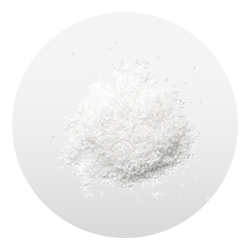
IODINE
Iodine is a trace element that is naturally present in certain foods (some fish, dairy products, shrimp, etc.) and is added to some types of salt. It is an essential component of thyroid hormones that regulate many biochemical reactions such as protein synthesis and enzymatic activity, and are critical for metabolic activity. Iodine is necessary for the proper development of the central nervous system and bones in fetuses and infants.

